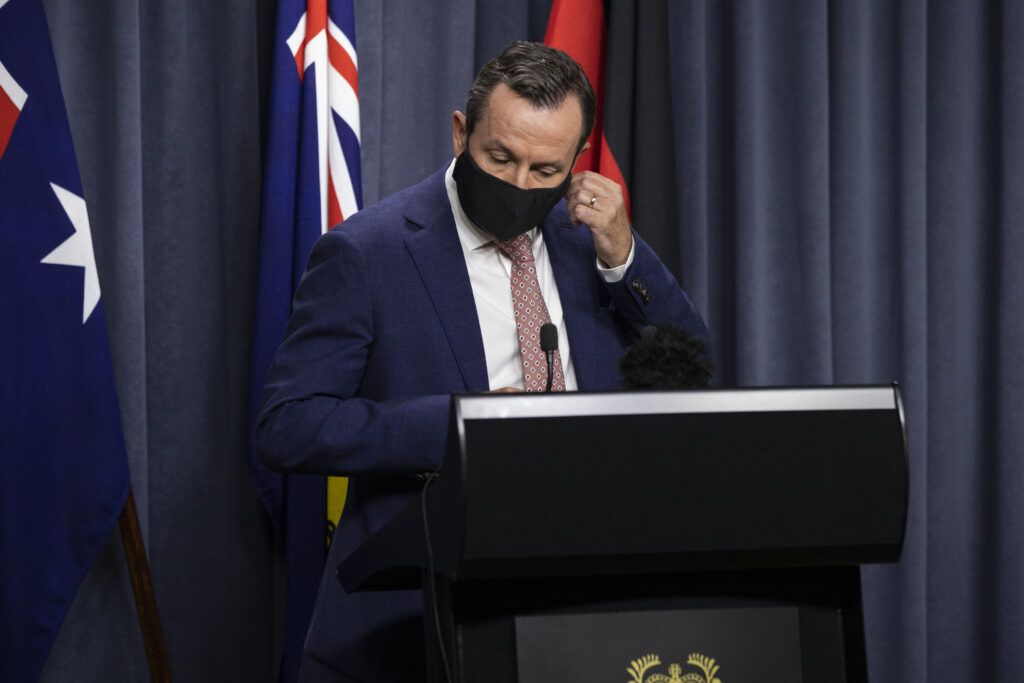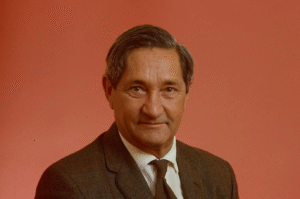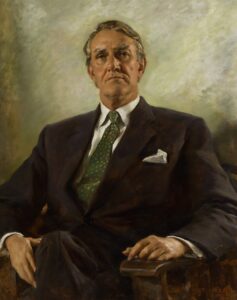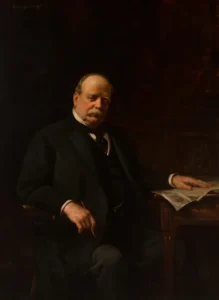COVID-19 has been beneficial for incumbents who have exercised strong and decisive leadership. Indeed, in Western Australia, the McGowan-led ALP Government’s approval rating reached record highs in 2020. But ahead of the election, the question on every Western Australian’s mind should be, what comes next?
Failed attempts at mitigating the virus’s impact have highlighted how missteps can be disastrous for governments. Western Australians lament the COVID-19 response (or lack of) throughout the United States and look disapprovingly at the meandering strategies implemented in the United Kingdom by Prime Minister Boris Johnson.
What many Western Australians may not recognise, however, is that the freedoms we were granted and enjoyed until January 31, may have been less of a product of strong leadership and more a result of luck, or at the very least, a mix of both.
The WA government was fortunate that previous infections of quarantine security guards, dating back to August 2020, did not have more widespread consequences. Recent events show that our state’s hotel quarantine arrangements were just as vulnerable to potential outbreaks as others around the nation.
Perth’s geography has undoubtedly aided its ability to mitigate new inflows of coronavirus into the state. Our mining sector has managed to respond to the virus with greater speed and focus than any government, which has kept the state’s finances intact through higher royalty revenue. In addition, Federal programs such as JobKeeper have kept unemployment figures artificially low.
But state-led “Royalties-for-Restrictions” programs can’t run forever, and fiscal stimulus will soon dry up. For now, these schemes mask a larger picture. Between 2019 and 2021, Australia’s government debt-to-GDP ratio will increase 52 per cent. The only Western nation to experience a larger increase will be New Zealand.
The severity of Mark McGowan’s approach to first border restrictions, and now a second potential COVID-19 cluster have been unmatched across Australia and much of the world. McGowan is continuing to push his image as Western Australia’s stoic warden against COVID-19, in an effort to consolidate power ahead of the March 13 election.
His hard-line stance, however, is driven by self- and party-interest as much as it is motivated by state wellbeing. Strategists and hard heads are calculating options if the upper house flips to an ALP majority.
For the foreseeable future, cases will continue to sporadically emerge, and more lockdowns will likely be required.
We know more about the virus than we did in March 2020. Mortality rates are not 2-3 per cent, as first thought. Median infection fatality rates, according to the World Health Organisation, are instead closer to 0.23 per cent. This drops to 0.05 per cent in people under 70 years old. Initially, lockdowns may have been justified, but the state government’s approach has been likened to “squashing an ant with a sledgehammer” by Nev Power, the chair of the National COVID-19 Commission.
Perhaps Western Australians are more supportive and compliant towards renewed restrictions because they have not endured the severity of lockdowns experienced elsewhere. But the evidence simply does not support sending two-million people into lockdown because of a single case.
Targeted, considered approaches in states like New South Wales illustrate that “choosing the economy over lives” is a false dichotomy given their success in mitigating the spread of the virus. Mark McGowan has been a harsh critic of such strategies, instead utilising “health advice” as a scapegoat for political gain.
Western Australians may not be as sympathetic if future lockdowns are enforced. The unintended economic and social damages they impart are well-documented and have been realised elsewhere around the world.
Our state government needs a better plan post-election. We cannot continue to rely on high iron ore prices, federal sugar-hits and COVID-stimulus packages which merely pass burdens onto future generations.
Proportionate and rational policy responses will be required, and the WA government will have to shift its focus from knee-jerk lockdowns to leading our state back towards a semblance of economic normality.
This article was first published on Business News.






